Florence (known as Florrie) was born on 17th August 1887 at Cornham, Exmoor. Her parents were Richard Squire and Tammy Carey (a variant of Thomasina). Florrie was the 8th out of 11 children, all of whom survived to adulthood.
John Albert (Jack) Bass was born in 1887/1888 in Alcombe, Somerset – just to the east of Minehead.
As a young woman, Florrie worked at the Glenthorne Estate as a housemaid, and this may be how she came to meet her husband, Jack, who was also working there as a coachman.
By the 1911 census Jack is recorded as single, aged 23 and working for Robert French at Cheriton Farm, Brendon as a ‘farm servant’. See census below.
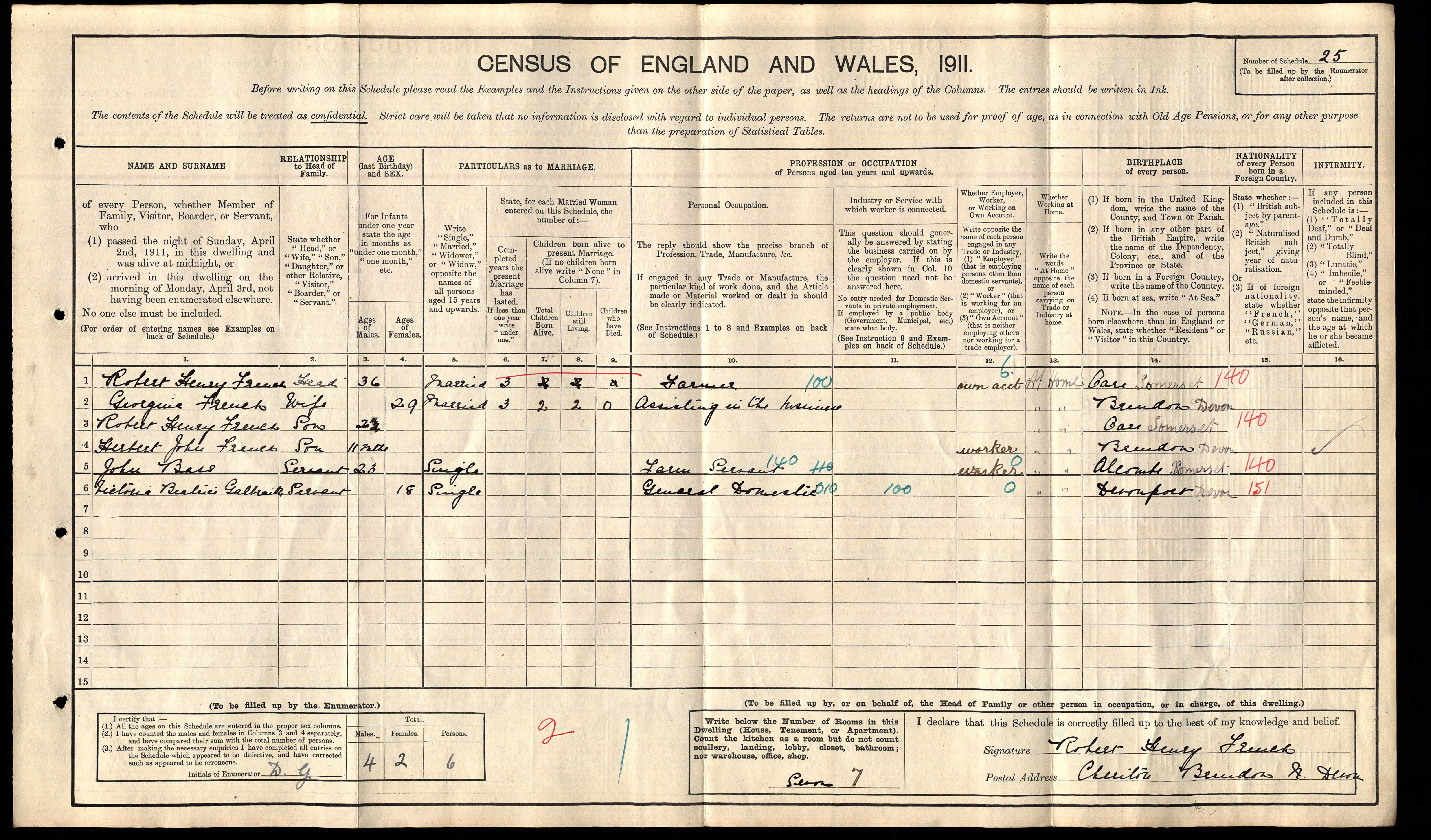
The term ‘farm servant’ – rather than agricultural labourer – is interesting and as described below relevant to Florrie and Jack’s story. The term applies to young, unmarried men who would have a 6-to-12-month contract, with their board and lodging provided in the farmhouse or on the farmstead where they worked. It is something of an old-fashioned designation to still be used in 1911 as it harks back to earlier agricultural days. An online article covering this topic can be found at The Farm Servant | SpringerLink (https://link.springer.com/chapter/10.1007/978-1-137-31674-5_2)
Florrie Squire married Jack Bass on the 26th December 1912 at Brendon Church. Their great granddaughter remembers Florrie as being less than 5 feet tall and Jack around 6-feet 7 inches tall.[1] They must have made a striking couple.
A copy of the page from the Church’s marriage register shows that both are recorded as living at Cheriton, Brendon at the time of the marriage. We believe the Squire family were living at Hallslake Farm near Cheriton, Brendon at the time so it could be they were with Florrie’s parents.
[1] Information from: Gillian Curtis (Great Granddaughter).
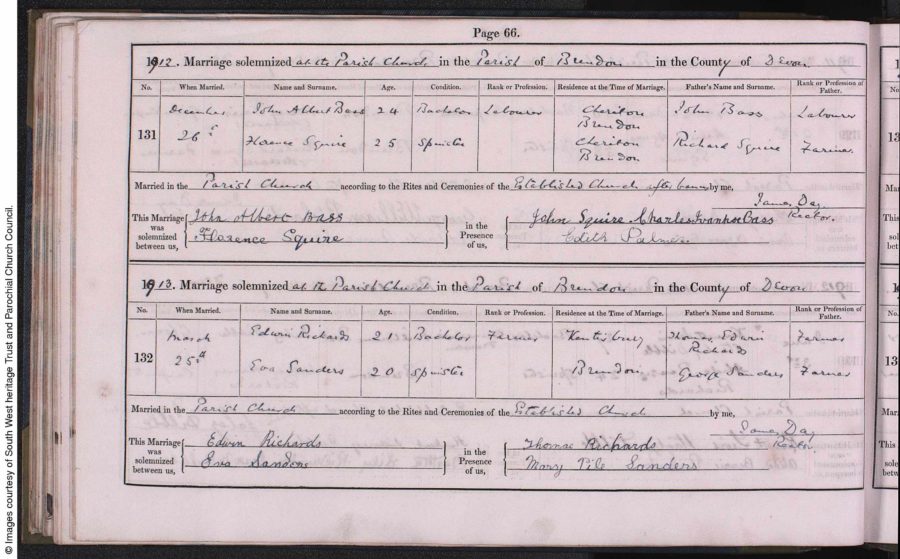
Jack’s work status as a ‘farm servant’ meant that he would need to find somewhere to live once married and family memories and documentary evidence indicate that Florence’s mother and father, Mr and Mrs Squire of Cheriton, rented Hoar Oak Cottage for the couple. The Fortescue Estate owned Hoar Oak Cottage from circa 1897 to the 1950s and either let it out to tenants or used it to house their shepherds running the Hoar Oak and Chains sheep herdings.
Florrie and Jack’s first child, John Albert Richard Bass (Albert), was born on 8th June 1913 at Hoar Oak Cottage. They are still there in 1915 as Jack is listed on the electoral roll as living at Hoar Oak Cottage, no doubt with Florrie and their child, but Florrie was not included on the electoral roll. It wasn’t until 1918 that the Representation of the People Act was passed which allowed women over the age of 30 – who met a property qualification – to vote and be on the electoral roll.
The image below is from the 1914 Fortescue Land Agent record of the valuation of various farms and cottages. It also confirms Florrie and Jack’s link to Hoar Oak Cottage as it shows that in 1914 and 1915 the tenant in 1915 of Hoar Oak Cottage and several acres of surrounding agricultural land was Mr R Squire, Florrie’s father.
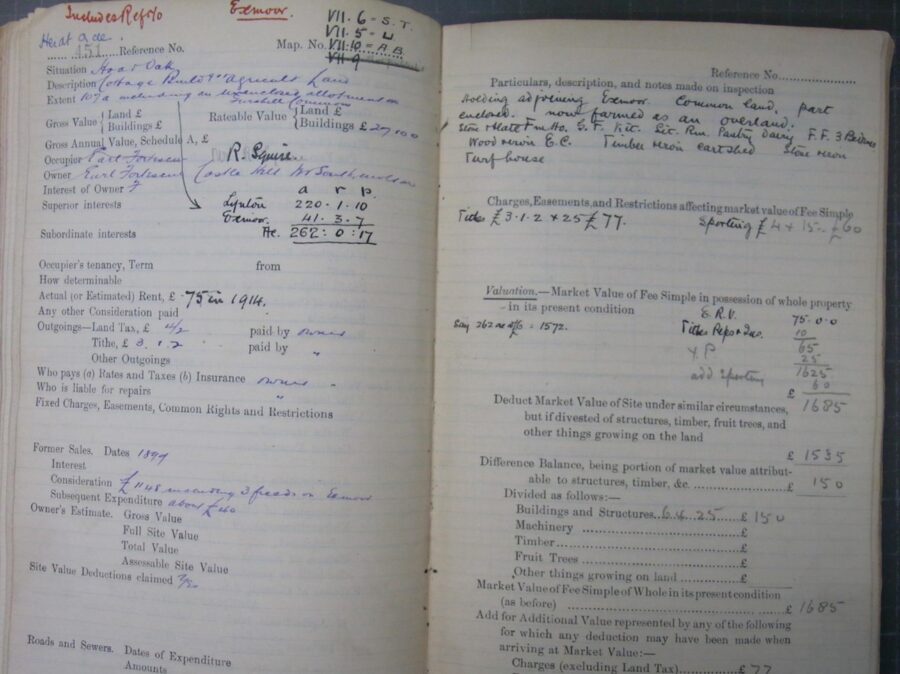
Further records from the Fortescue Land Agent’s papers held in the Devon Record Office (Ref:1262M/0/E/5) backs this up as they record that in 1915 Mr and Mrs Squire saw the Land Agent with the intention to ‘give up’ Hoar Oak Cottage and ‘sell the grass’- presumably to the Fortescue Estate.
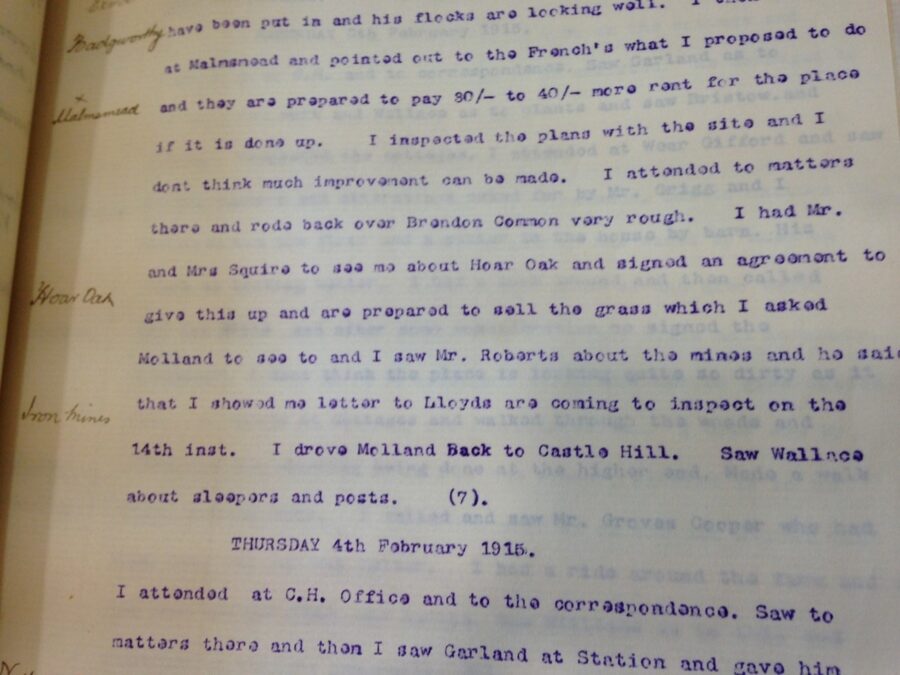
Whether Jack worked for the Fortescues as a shepherd is not recorded but it seems unlikely as it seems that Florrie’s parents were straightforward tenants and this fits with family memories that Mr and Mrs Squire rented the cottage for Jack and Florrie to live in.
One of Jack and Florrie’s descendants, Gillian Curtis, shared with The Friends of Hoar Oak Cottage a tragedy which befell the couple in 1922. By then they had four children, John 11, Audrey 7, Frederick 3 and a baby, Dorothy just 10 months. They were living in Cross Street, Lynton. The youngest three children all died in October 1922 of an acute gastric infection. At the time, the eldest son John was a patient in the Lynton Cottage Hospital recovering from a fractured leg and was, as a consequence, spared the same fate as his younger siblings.
The item below, from The Western Morning News of 13th October 1922, reports the sad incident and the assumption was that the cause of the deaths was ‘poisoned milk.’ Elsewhere in newspapers of the time can be found discussions of the need to promote the sterilization of milk and it is likely the Bass tragedy helped push forward legislation enforcing the mandatory pasteurization of milk.
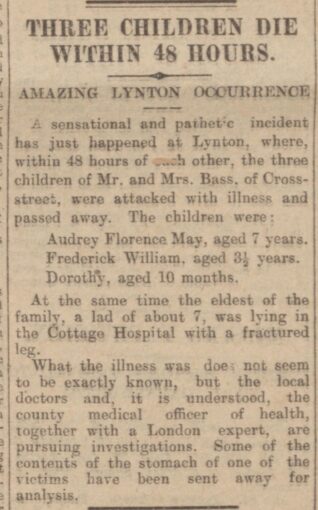
The three Bass children were buried in Lynton Churchyard. Jack and Florrie had one more child, Vera, born after this terrible incident.
In the following years, Jack and Florrie Bass lived in Barbrook and Lynton where they ran lodging houses and a Bed & Breakfast and took in children sent to Lynton during the Second World War. They were active in local charity activities, particularly around raising money for Lynton Cottage Hospital. Jack died in 1951 and Florrie in 1971. They are both buried in Lynton – Lea Road – Cemetery.
Thank you to Gillian Curtis and Vic Bass for sharing information about, and the photos below of, Jack and Florrie Bass.
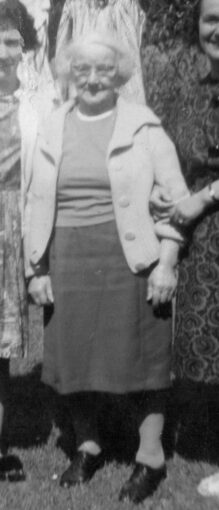
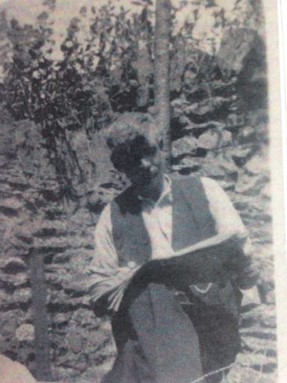
The chapter on Florrie Bass in “The Women of Hoar Oak Cottage – An Untold History” contains more details about this family and their life at Hoar Oak Cottage.
To get a copy go to:
- Books4Sale – hoaroak (hoaroakcottage.org)
- https://hoaroakcottage.org/books4sale/
- OR email: info@hoaroakcottage.org
